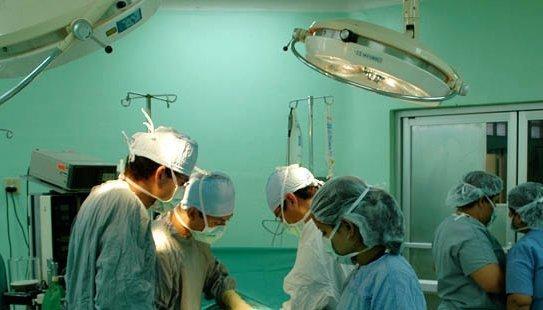
How Abortion Hypocrisy Kills Women
Partager :
-
Pour ajouter l'article à vos favorisS'inscrire gratuitement
identifiez-vousVous possédez déjà un compte ?
Se connecterL'article a été ajouté à vos favoris -
Pour accéder à vos favorisS'inscrire gratuitement
identifiez-vousVous possédez déjà un compte ?
Se connecter
Le 8 mai 2019 à 13h21
Modifié 11 avril 2021 à 2h42KISUMU, KENYA – Opposition to abortion is so intense that even where women have the legal right to terminate their pregnancy, it can be extremely difficult to access the services needed to exercise that right. But, worse than that, opponents of abortion tend to ignore the failures that lead women to the point where they seek one in the first place.
From a moral standpoint, there is a strong case to be made for respecting a woman’s personal freedom and bodily autonomy, rather than forcing her to put her health or wellbeing at risk by carrying an unwanted or unsafe pregnancy to term. Yet, given how rife with misinformation and muddied by misplaced arguments the issue is, policy debates often go nowhere unless they frame abortion first and foremost as a health matter.
Consider the case of Kenya. Despite having one of Africa’s most progressive abortion laws – a woman has the right to terminate a pregnancy if “there is need for emergency treatment, or the life or health of the mother is in danger, or if permitted by any other written law” – enduring opposition to abortion has undermined implementation. And this is to say nothing of the women who would not qualify for an abortion under these rules.
But it is well documented that outlawing abortion does not end the practice. Rather, when the authorities jail anyone who is rumored to be providing safe abortions, as occurs in Kenya, women end up turning to providers who use highly dangerous methods to get the job done. For example, they perforate women’s uteruses with sharp objects, sit on women’s bellies to eject the fetus, and prescribe unsafe concoctions.
To avoid these back-alley providers, women try to induce abortions by ingesting large amounts of painkillers or poisoning themselves with detergents. Some die; others are left with no uterus; still others are left managing complications like cervicovaginal fistulas.
After years working in reproductive health, I can say authoritatively that women do not terminate pregnancies on a whim. They do not pay an unqualified person to stab their uterus because the mood strikes them. Condemning them will not change their minds; nor will prioritizing the development of a fetus over the needs, rights, and wellbeing of its mother. All it will do is make them more likely to risk their health and lives seeking an unsafe abortion.
If we want to reduce demand for abortion services, we must recognize that it is often the culmination of a series of systemic failures that begin during childhood, when a comprehensive sexual education (CSE) should be required. A CSE teaches young people about sex and relationships in an age-appropriate, culturally sensitive, realistic, nonjudgmental, and scientifically accurate way, and can increase the use of contraceptives and reduce teen pregnancy rates, particularly if it takes a gender-based approach, focusing on empowering young girls to protect their own health.
Such an education is not a privilege, but a right. In Kenya, Article 35 of the constitution guarantees every citizen “the right of access to information held by another person and required for the exercise or protection of any right or fundamental freedom.” This includes the right to reproductive health care, enshrined in Article 43.
But, like the right to abortion, the right to CSE is often not respected, owing to moralizing resistance from religious leaders and anti-choice movements, as well as other factors, such as weak dissemination of the curriculum and a dearth of adequately trained teachers. As a result, myths and misconceptions remain widespread.
This, together with funding shortages and cultural factors (such as a lack of male involvement in reproductive-health issues), contribute to low contraceptive uptake, with only 58% of women in Kenya who should be using modern contraceptives actually doing so. Unsurprisingly, teenage pregnancy is unacceptably high.
It is time to address the systemic failures that lead to girls and women ending up maimed or dead. Here, an ounce of prevention is worth a pound of cure: contraception in health budgets, quality CSE in schools, and youth-friendly reproductive-health services.
But the cure must also be an option. Rules that punish women must be replaced with modern laws – in line with international human-rights frameworks – that protect women’s reproductive freedom, including by guaranteeing access to safe abortion services. Written guidelines to end the victimization of abortion service providers are also needed.
How can a government that fails to ensure CSE or invest adequately in family planning penalize its women for unwanted pregnancies? How can a society that ignores women’s suffering blame the victims for its inaction? Those who do nothing to prevent unwanted pregnancies – and everything to punish the women affected by them – cannot claim the moral high ground.





